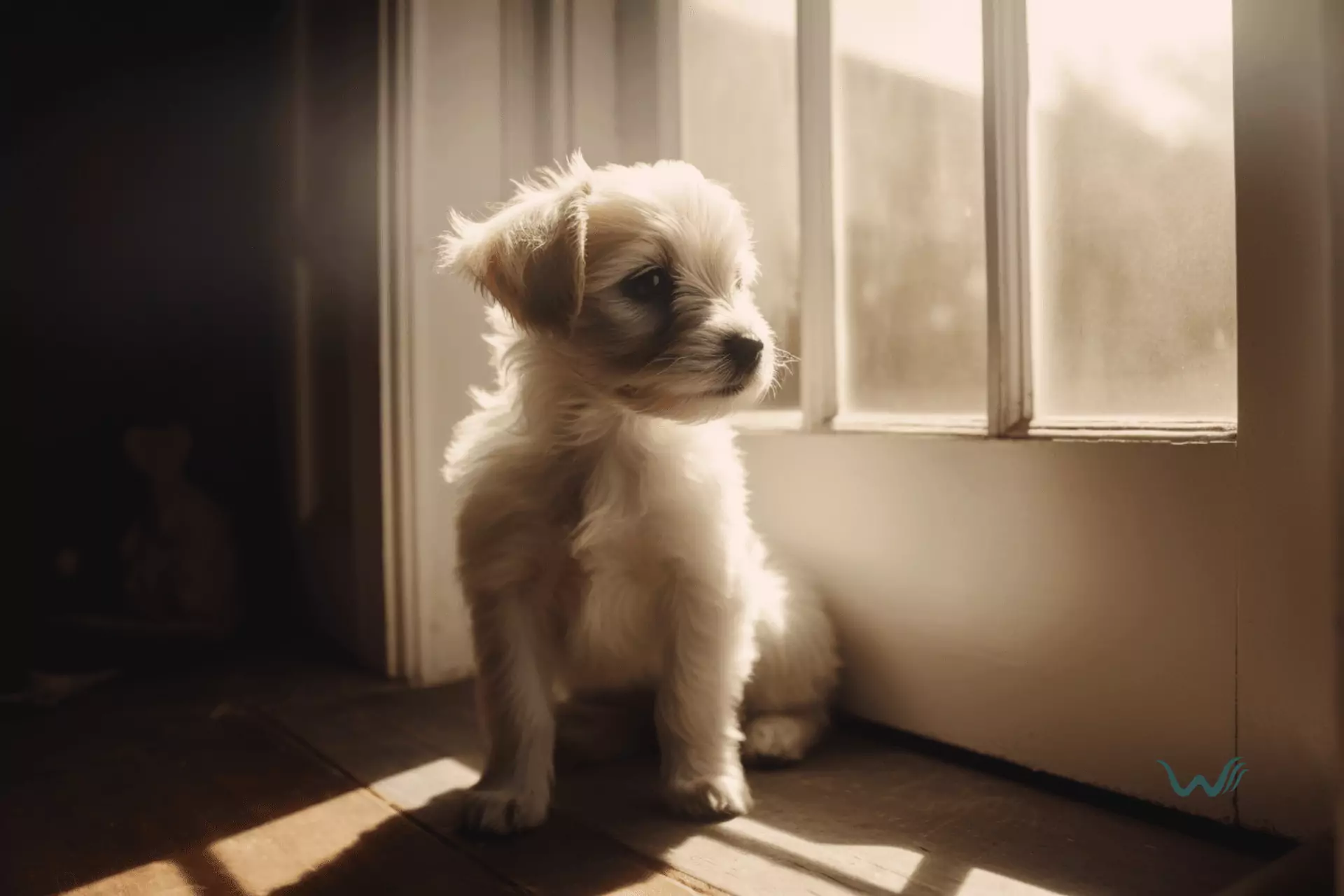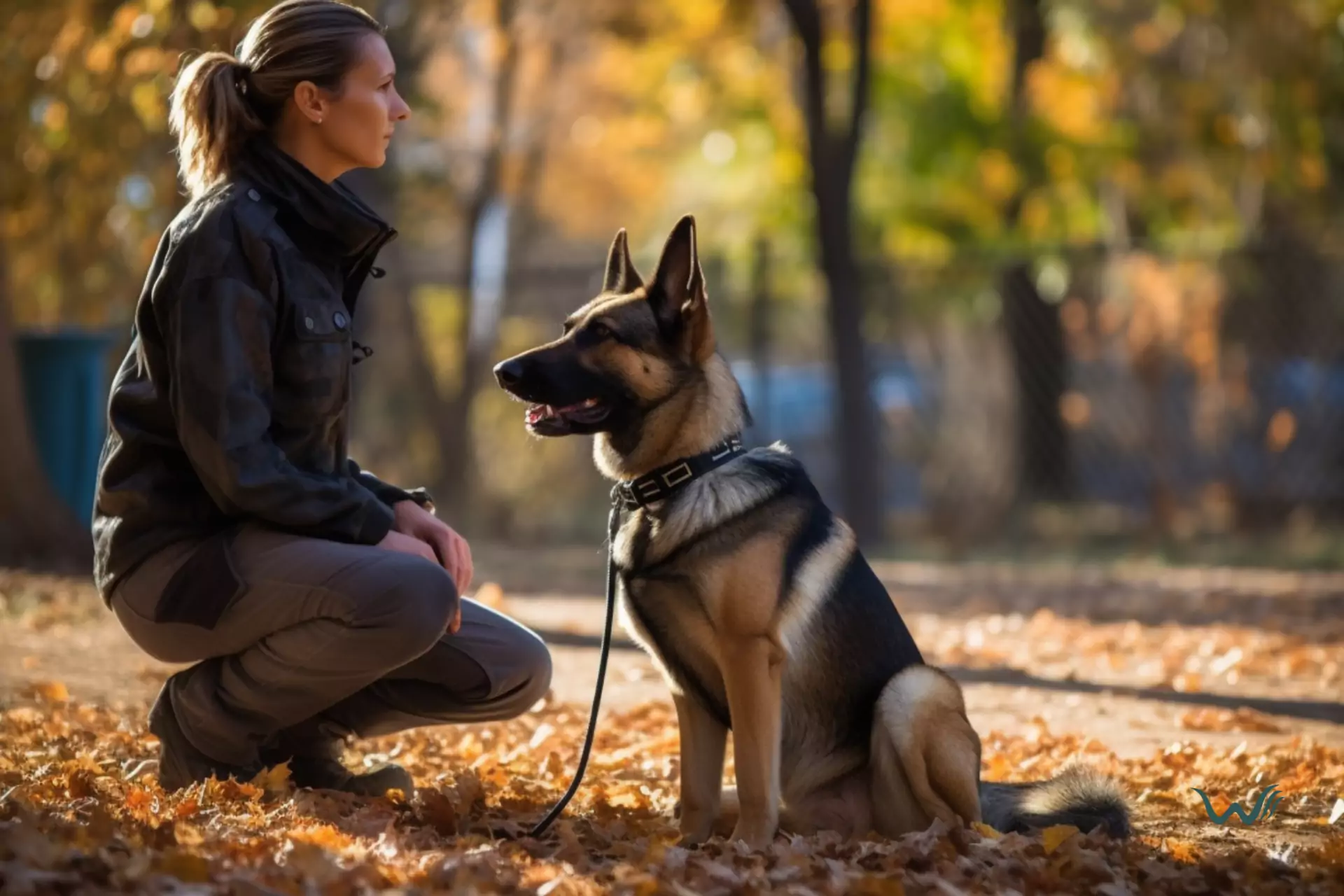

How To Keep Your Puppy From Peeing In The House
by Haley Mills
Last updated: April 22, 2024
Verified and Approved by:
Angela Morris,
MSW, LCSW
Fact Checked

Are you tired of constantly cleaning up after your puppy’s accidents in the house? It can be frustrating and messy, but fear not! In this article, we will provide some effective strategies to help you keep your puppy from peeing in the house. By establishing a consistent schedule, properly supervising your puppy, using positive reinforcement techniques, creating a designated bathroom area, and seeking professional help if needed, you can successfully train your furry friend to do their business outside.
Having a consistent schedule is vital to preventing your puppy from peeing in the house. Make sure to take your puppy outside to their designated bathroom area at the same times every day, such as after meals, naps, and playtime. This will help them understand when and where they should go potty. Additionally, proper supervision is essential to catch any accidents before they happen. Keep a close eye on your puppy, especially when they need to relieve themselves, such as sniffing around or circling. You can redirect them to the appropriate spot and prevent accidents indoors by being attentive and proactive.
Establishing a Consistent Schedule
Now that you understand the importance of establishing a consistent schedule, let’s dive into how you can use it to keep your puppy from peeing in the house. The key to preventing accidents is to create a routine that includes regular potty breaks. Start by taking your puppy outside first thing in the morning, and then again every few hours throughout the day. Be sure to take them out after meals, play sessions, and naps as well. By following a consistent schedule, you teach your puppy when and where to relieve themselves, reducing the chances of accidents inside the house.
Be sure to monitor your puppy and anticipate their needs closely. Watch for signs such as sniffing the ground, circling, or squatting, as these are indications that they need to go outside. If you notice any of these behaviors, immediately take your puppy to their designated potty area. Consistency is key here too, so always take them to the same spot to reinforce the idea that this is where they should go. Reward your puppy with praise and treats when they successfully eliminate outside, as this positive reinforcement will further encourage them to continue doing so. With a consistent schedule and close supervision, you can effectively train your puppy to avoid peeing in the house.
Properly Supervising Your Puppy
One effective way is by closely watching and guiding your pup to prevent accidents indoors. When you bring your puppy home, it is essential to always keep a close eye on them. This means not letting them roam freely around the house unsupervised. Instead, please keep them in a small, confined area such as a crate or a playpen. This will limit their access to the rest of the house and give you better control over their behavior.
In addition to keeping a close eye on your puppy, it is also important to establish a routine for bathroom breaks. Take your puppy outside to their designated potty area regularly, especially after meals, naps, and playtime. By doing this, you are teaching them that outside is the appropriate place to go potty. If you notice your puppy showing signs that they need to go, such as sniffing the ground or circling, immediately take them outside. This will help prevent accidents from happening inside the house. Praising and rewarding your puppy when they go potty outside is also beneficial. This positive reinforcement will help them understand that going outside is a good thing. By closely supervising your puppy and establishing a routine, you can effectively prevent accidents and keep your house clean.
Using Positive Reinforcement Techniques
To prevent accidents effectively, you’ll want to use positive reinforcement techniques with your furry friend. Positive reinforcement involves rewarding your puppy for desired behaviors, such as going outside to eliminate. When your puppy successfully goes to the designated spot to pee, be sure to praise and reward them with treats or verbal affirmations. This positive reinforcement will help your puppy associate going outside with positive experiences, making them more likely to repeat the behavior in the future.
Consistency is key when using positive reinforcement techniques. Create a schedule for your puppy’s bathroom breaks and stick to it. Take them outside first thing in the morning, after meals, and before bed. You’ll minimize the chances of accidents occurring indoors by providing regular opportunities for your puppy to eliminate outside. It’s also important to be patient and understanding during the training process. Accidents will happen, especially in the early stages, so it’s important not to punish your puppy for accidents. Instead, focus on reinforcing positive behaviors and redirecting them to the appropriate spot to pee. With time and consistency, your puppy will learn to associate going outside with positive reinforcement and will be less likely to pee in the house.
Creating a Designated Bathroom Area
Establish a designated bathroom area for your puppy to prevent accidents indoors. This will help teach your puppy where it is appropriate to go potty and avoid any confusion. Choose an area outside that is easily accessible and away from high-traffic areas. Make sure it is a place that you can easily clean up after your puppy as well.
You can use a specific spot in your yard or even a designated patch of grass or gravel to create the designated bathroom area. Use positive reinforcement techniques to encourage your puppy to use this area. Take them to the designated spot on a leash and give them a verbal cue, such as “go potty” or “do your business.” When your puppy successfully goes potty in the designated area, praise them and give them a treat as a reward. Over time, your puppy will associate this area with going potty and will be more likely to use it consistently.
Make sure to take them to the same spot every time they need to go outside, and be patient as they learn and develop their bathroom habits. With time and positive reinforcement, your puppy will learn to go potty in the designated area and accidents indoors will become a thing of the past.
Seeking Professional Help if Needed
If you’re struggling with your puppy’s potty training, it might be a good idea to seek professional help. While many pet owners are able to train their puppies on their own successfully, there are some cases where additional assistance may be necessary. Professional trainers and behaviorists specialize in working with dogs and can provide valuable guidance and support.
One of the benefits of seeking professional help is that these experts have experience working with a variety of different breeds and temperaments. They can assess your puppy’s specific needs and develop a customized training plan tailored to their personality and learning style. They can also provide tips and techniques you may not have considered, helping you address any specific challenges you may be facing.
Additionally, professional help can provide an objective perspective on your puppy’s behavior. Sometimes, as owners, we may unintentionally reinforce certain behaviors or unknowingly do something that is hindering our puppy’s progress. A professional can observe your interactions with your puppy and provide feedback on what may be contributing to the problem. They can also offer alternative strategies that may be more effective for your particular situation.
If you’re finding potty training your puppy difficult, seeking professional help can be wise. These experts can provide tailored guidance and offer objective feedback to help you address any challenges you may be facing. Remember, every puppy is unique, and what works for one may not work for another. By enlisting the help of a professional, you can increase your chances of successfully training your puppy and preventing accidents in the house.
– Can Dehydration Cause My Puppy to Have Accidents in the House?
Yes, dehydration can cause puppies to have accidents in the house. One of the reasons for dog dehydration is insufficient water intake. When a puppy is dehydrated, it can lead to frequent urination and accidents indoors. Make sure to provide plenty of water for your puppy to prevent dehydration.
Can Chewing and Peeing Behaviors Be Linked in Dogs?
There is a belief that chewing and peeing behaviors can be linked in dogs. If a dog is anxious or stressed, it may exhibit both behaviors as a way to cope. To address this, it’s important to stop dog chewing behavior through training and provide plenty of opportunities for bathroom breaks.
Frequently Asked Questions
How can I prevent my puppy from chewing on furniture or household items?
To prevent your puppy from chewing on furniture or household items, provide appropriate chew toys and regularly exercise them to release excess energy. Use bitter sprays or deterrents on objects you don’t want them to chew.
What should I do if my puppy continues to have accidents in the house even after following the tips provided?
If your puppy continues to have accidents in the house despite following tips, it’s important to remain patient and consistent. Consider consulting a veterinarian to rule out any underlying health issues and reinforce proper potty training techniques.
Are there any specific cleaning products or techniques I should use to remove pet stains and odors?
You can use specific cleaning products and techniques to remove pet stains and odors. Look for enzymatic cleaners that break down the urine and use a black light to locate hidden stains.
Can I use pee pads or artificial grass as an alternative to taking my puppy outside for bathroom breaks?
Yes, you can use pee pads or artificial grass as an alternative to taking your puppy outside for bathroom breaks. They provide a designated spot for your puppy to relieve themselves indoors.
How long does it typically take for a puppy to be fully house-trained?
It typically takes a puppy about 4 to 6 months to be fully house-trained. Consistency, positive reinforcement, and patience are key in teaching them to go outside or use designated indoor spots.
Conclusion
In conclusion, preventing your puppy from peeing in the house requires consistency, supervision, positive reinforcement, and a designated bathroom area. Establishing a consistent schedule for feeding, exercise, and bathroom breaks can help your puppy develop good habits and avoid accidents inside the house. Proper supervision is key to catching any signs your puppy needs to go outside and redirecting them to the designated bathroom area. Positive reinforcement techniques, such as praise and treats, can encourage your puppy to use the appropriate bathroom spot. Finally, if you’re struggling to house-train your puppy, don’t hesitate to seek professional help from a trainer or veterinarian. They can provide guidance and support tailored to your specific situation. You can teach your puppy to do their business outside and keep your house clean with patience and persistence.
Certify Your Emotional Support Animal Today

Why You Can Rely on Us?
At Wellness Wag, we believe your pet deserves care rooted in both science and compassion. Each article is carefully researched, written in clear language for pet owners, and then reviewed by qualified professionals to ensure the information is evidence-based, current, and practical for real-life care. Our goal is to help you feel confident in making informed decisions about your pet’s health and well-being.
Reviewed by
Angela Morris, MSW, LCSW
Angela is a licensed clinical social worker with 20 years of experience in patient advocacy and community mental health. She has assisted numerous clients with ESA evaluations and brings a deep understanding of disability accommodations, ensuring that all information is accurate, supportive, and practical.

Written by :
Haley Mills
Last Updated :
April 22, 2024










